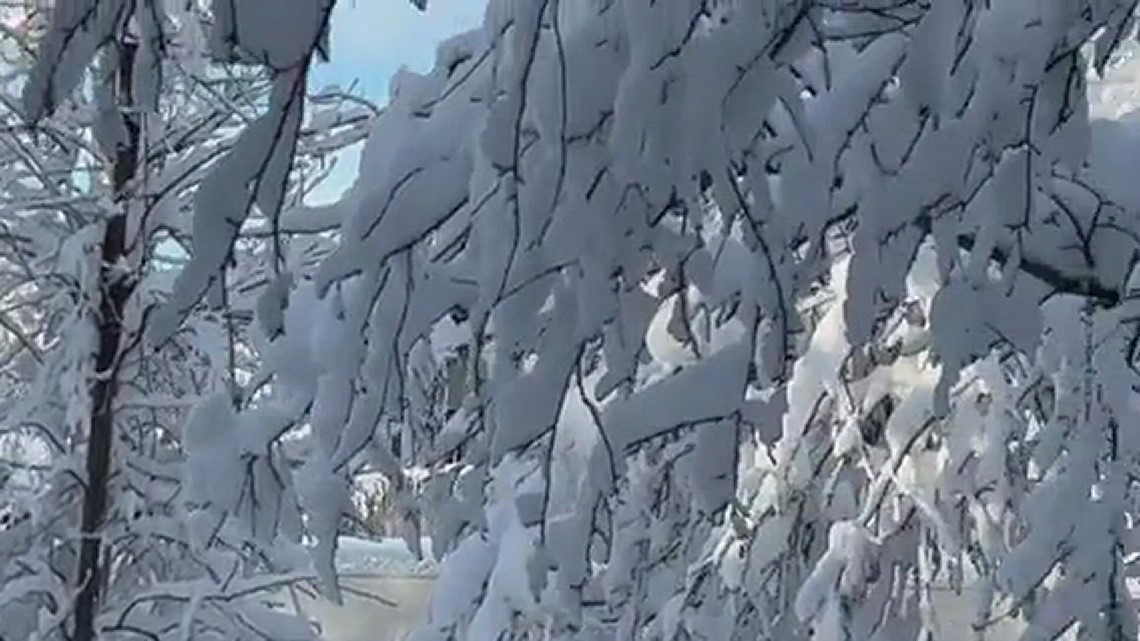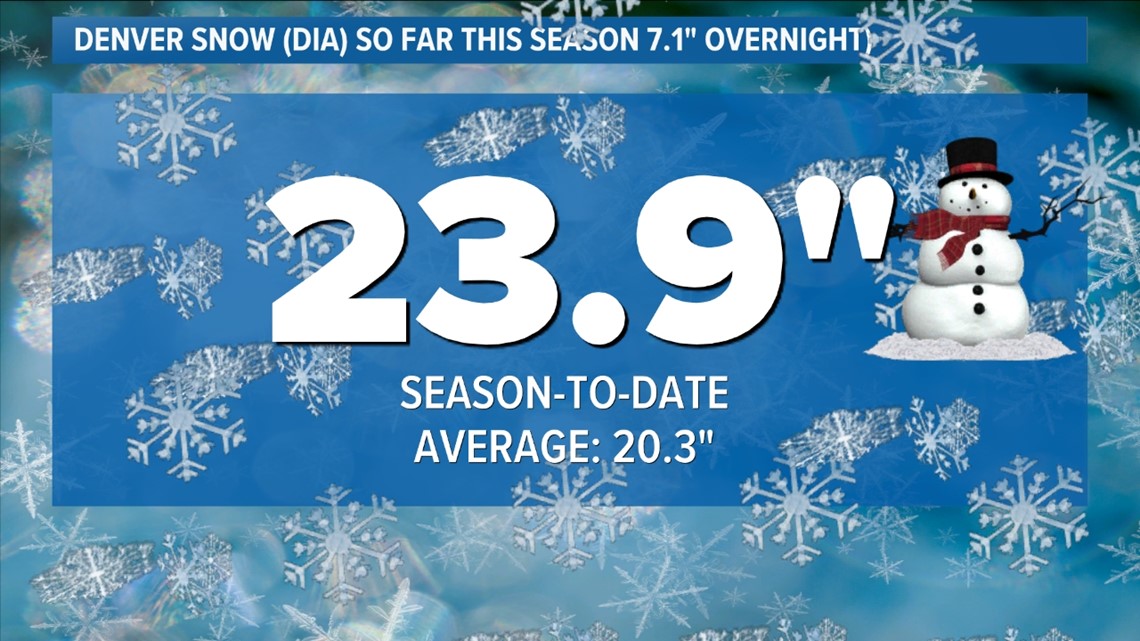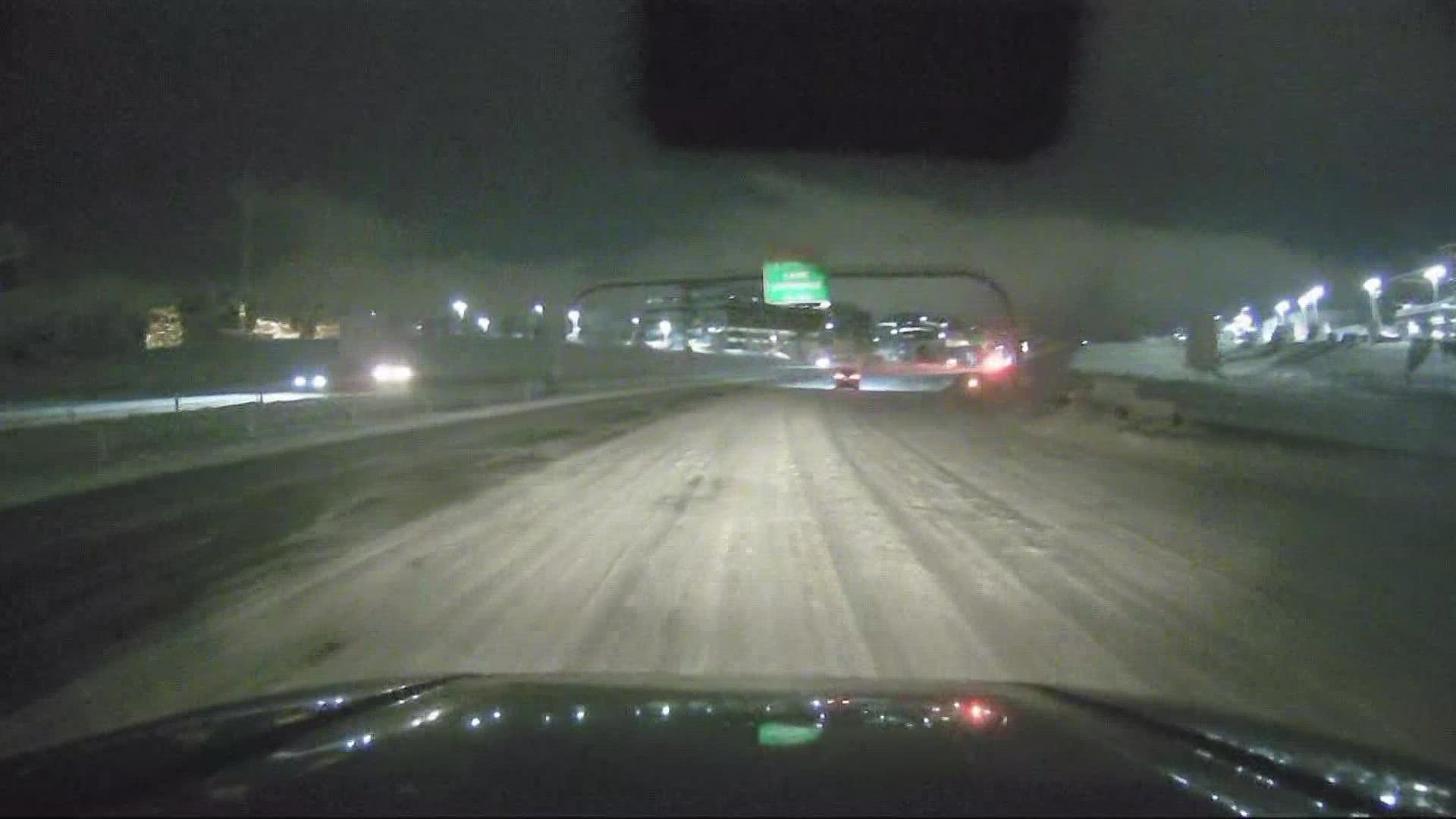DENVER — Wednesday night's Front Range snowstorm was wild for a number of reasons, but the reason it'll go into the record books won't necessarily be thanks to the amount of snow that fell.
Heavy, wet, spring-like snow turned driveways into water-laden piles of slush on Wednesday night and Thursday morning.
And it even broke some records.


At Denver International Airport, 0.67 inches of precipitation (rain and melted snow equivalent) fell Wednesday night and Thursday morning. That's approximately the same amount of precipitation that Denver sees during the months of December and January combined.
A total of 0.60 inches fell Wednesday at DIA, smashing the old daily precipitation record of 0.29 inches, set in 1932. That made it Denver's wettest winter day –meaning December, January and February – since December 2006. It was also Denver's eighth-wettest day on record.
In Boulder, 1.24 inches of precipitation fell, a nearly off-the-chart number. That made it Boulder's fourth-wettest December storm on record.
If you look at the liquid equivalent precipitation along the Front Range from Wednesday's storm, basically everybody saw two or three times their average December precipitation. This was an exceptionally wet late December snowstorm.
Snow Records
While 7.1 inches of snow – and even some of the higher-end totals in the foothills – aren't records for the Front Range or even close to it, it does contributed to a very active month for snow.
Adding in 7.1 inches, Denver is up to 13.0 inches of snow so far this December. That's good enough for the city's snowiest December in 11 years and well over the monthly average of 8.0 inches.
It also brings Denver's seasonal snowfall total up to 23.9 inches, above the season-to-date average of about 20 inches.


Denver officially saw 7.1 inches of snow at DIA, the city's official climate site. Boulder saw 9.3 inches of snow, and parts of the metro area got as much as 15 inches of accumulation.
But the real story with the overnight snow, frankly, was just how much water was within all of that snow.
SUGGESTED VIDEOS: Colorado Climate

